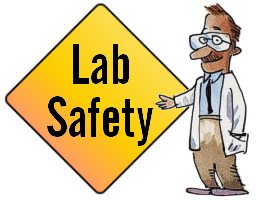Team:UEA-JIC Norwich/Safety
From 2011.igem.org
<body>
Contents |
LAB SAFETY
<body>
RESEARCHER SAFETY
Our project requires precautions to ensure the safety of the researchers within the lab, as with any other scientific experiment. This involves the use of gloves and labcoats to protect from chemical spills, which are corrosive or irritant, such as luciferin. Also, ensuring the use of masks when using powdered media.
PUBLIC SAFETY
Our project poses very little risk to public safety, as we are using a strain of non-pathogenic algae, known as chlamydomonas reinhardtii. The recombinant DNA we are creating emits light; it is difficult to see how this could ever engender pathogenicity even after horizontal gene transfer to other organisms. Regardless of this, our project must be properly contained. Control measures to ensure this include keeping the windows of the laboratory closed, autoclaving all waste and ensuring that the fume cupboard is clean and that no waste is left behind to ensure that the aerodynamics are sustained.
ENVIRONMENTAL SAFETY
We are using a species of algae, known as chlamydomonas reinhardtii. Our project does not pose a risk to environmental safety. We are using lab strains of E. coli, which are unable to live outside the lab as they are out competed as they are optimized for lab conditions. The bacteria do not have any additional fitness advantage, except that they have antibiotic resistance. Our project does not pose a risk to environmental safety, however containment is essential.
BIOBRICK PARTS AND SAFETY
No, our parts do not pose any risk to public or environmental safety.
BIOSAFETY GROUP
There is a biosafety group run by the JIC, known as the Biosafety International Network and Advisory Service (BINAS) of the United Nations Industrial Development Organization (UNIDO). This course is run by UDEC for past two years at the JIC and is now being expanded elsewhere around the globe.
DEALING WITH SAFETY ISSUES THAT COULD BE USEFUL FOR FUTURE iGEM COMPETITIONS
In addition to meeting safety requirements outlined by the JIC, iGEM students should be required to take an online course provided by iGEM to standardize training for all participating students across the globe. The Event Tree Analysis and Fault Tree Analysis described on the iGEM safety page are both promising ways to assure that biological circuits remain safe even when one part fails. This concept could be made a reality if the Parts Registry devoted a special page on their site to catalog certain arrangements of parts that produce unintended consequences. If every team were able to submit their findings to such a page, it would be easy to see trends in the data and make hypotheses as to which parts should not be used in conjunction in the future. All the students working on the project have successfully completed the Chemical and Hazardous Waste Handling course given by the John Innes Centre, Environmental Health & Safety Office.
.
 "
"





